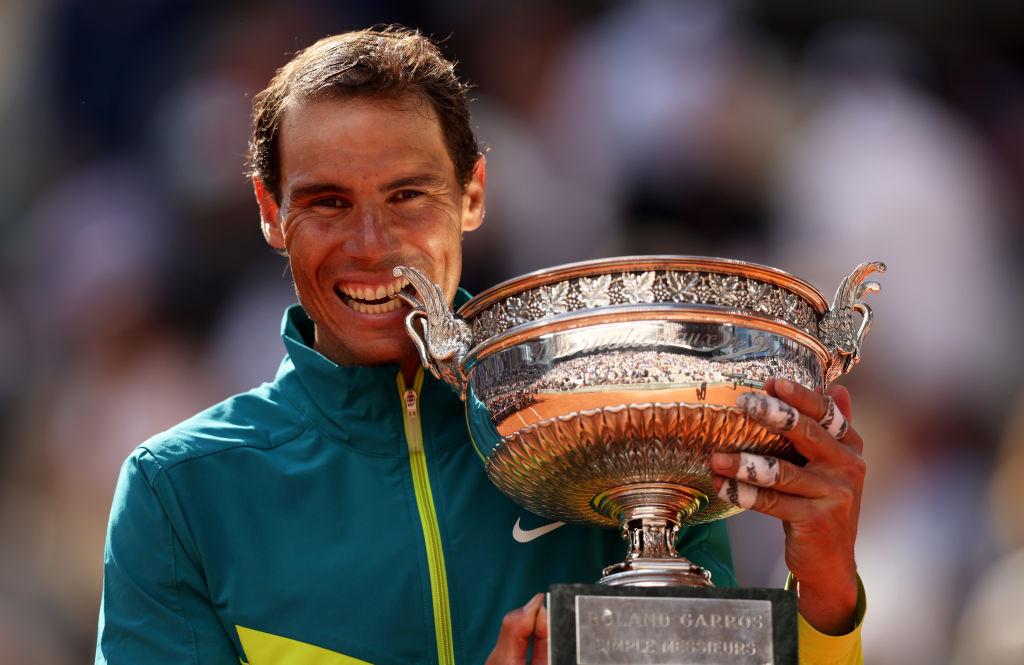Commentary
Rafael Nadal won his 14th Roland Garros tennis crown on June 5. It was also his 22nd Grand Slam victory, which sets him apart from Novak Djokovic and Roger Federer, who each have 20 Grand Slams trophies.

Rafael Nadal won his 14th Roland Garros tennis crown on June 5. It was also his 22nd Grand Slam victory, which sets him apart from Novak Djokovic and Roger Federer, who each have 20 Grand Slams trophies.